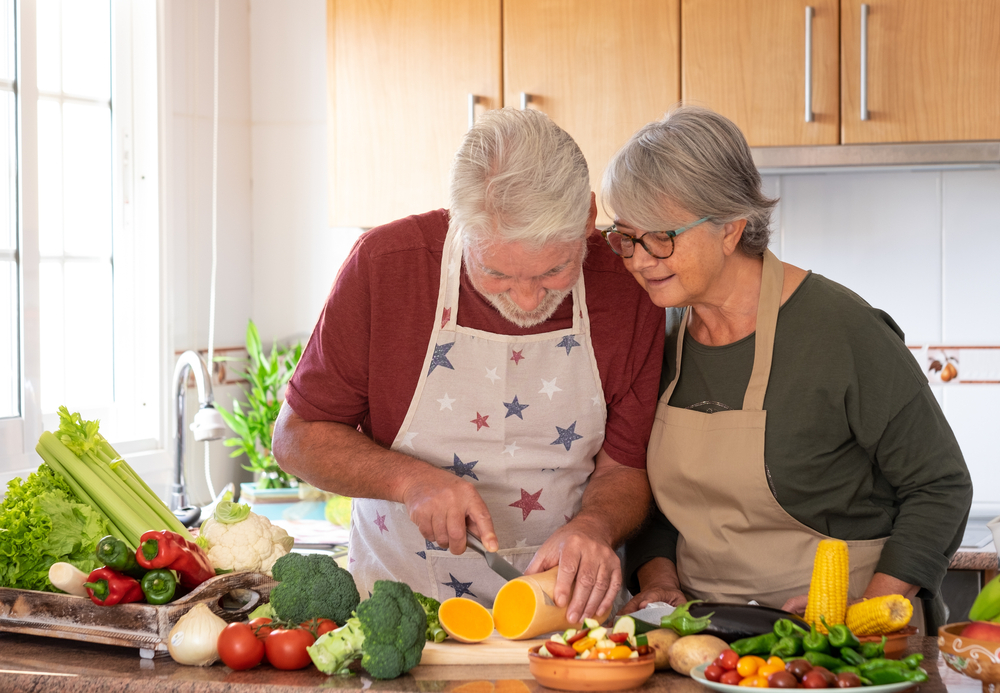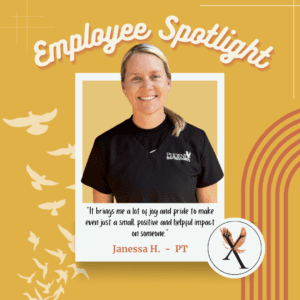Nutrition is about eating a healthy, balanced diet so your body can get the nutrients it needs. No matter how old you are, good nutrition is important. As you grow older, your body and life will change, and everything you need to stay healthy will also change.
In today’s blog from Phoenix Home Care & Hospice, we outline nutrients that senior adults might need more of. As always, seek the advice of your doctor before making any dietary changes.
What nutrients should seniors get more of?
Calcium
As seniors age, they need more calcium in their diets to maintain bone density. Bone density is important, particularly for people who are susceptible to falls and medical conditions like osteoporosis.
Vitamin D
Seniors need more vitamin D because this vitamin helps the body absorb calcium.
Choose calcium-rich foods and beverages, and aim for three servings of low-fat or fat-free dairy products daily. Sources of calcium include fortified cereals and fruit juices, dark green leafy vegetables, canned fish with soft bones, and fortified plant-based beverages. Find vitamin D in fatty fish such as salmon, eggs and fortified foods and beverages. Consider a supplement with enough calcium and vitamin D in it.
Potassium
Potassium is a mineral found in bananas and spinach. It can help reduce your blood pressure, thereby helping your body prevent heart-related problems.
Vitamin B12
Senior adults don’t absorb vitamin B12 as well as younger adults. This vitamin is found primarily in meats, but there are also supplements with vitamin B12 you may consider.
Protein
Protein is an essential nutrient for everyone, and seniors need more of it because it keeps hair, skin, and muscles strong. Whether you prefer protein from lean meat or plant-based protein, make sure your senior adult relative eats enough quality protein every day.
How does age affect your nutrition?
Some changes that can occur with age can make eating more difficult and healthier.
These may include changes like:
- Family life or living situation, such as suddenly living alone or not having help when necessary
- Health, which can make it difficult for you to cook or eat
- Medications, which can change the taste of food, dry out your mouth, or
take away your appetite, smell, and taste
- Income, which means you may not have as much money to buy food
- Physical issues, such as difficulty chewing or swallowing food
How can you remain health conscious as you age?
Eat foods that provide you with lots of nutrients without generating a lot of extra calories, such as fruits and vegetables (choose different types with bright colors). Consider whole grains, such as oatmeal, whole wheat bread, and brown rice, low-fat or skimmed milk and cheese, or soy or rice milk with added vitamin D and calcium, seafood, lean meats, poultry, and eggs, legumes, nuts, and seeds.
Avoid empty calories, or foods without a lot of nutrients, such as potato chips, candy, baked goods, soda, and alcohol.
Choose foods low in cholesterol and fat. You should pay special attention to avoiding saturated fats and trans fats. Saturated fat is usually fat from animals. Trans fats are fats processed with margarine and shortening. You can find them in baked goods and fried foods bought in some fast food restaurants.
Drink enough fluids to avoid dehydration. Some people lose their thirst as they age. Certain medications can make adequate fluids more important. Drink adequate water every day for optimal health.
Get physical activity. If you’ve started to lose your appetite, exercise can help you feel hungry.
A healthy diet rich in important nutrients helps prevent underlying health problems common to older people, such as constipation, heart disease, diabetes, high blood pressure and high cholesterol. Nutritious foods can also help you maintain a healthy weight and can do wonders for your energy levels.
How can Phoenix Home Care & Hospice help my senior relative?
Keep your nutrition top of mind to aid in a smooth transition to the next stage of life. Enlist help from the professionals at Phoenix Home Care for assistance with anything you or your relatives may need as they heal at home.






